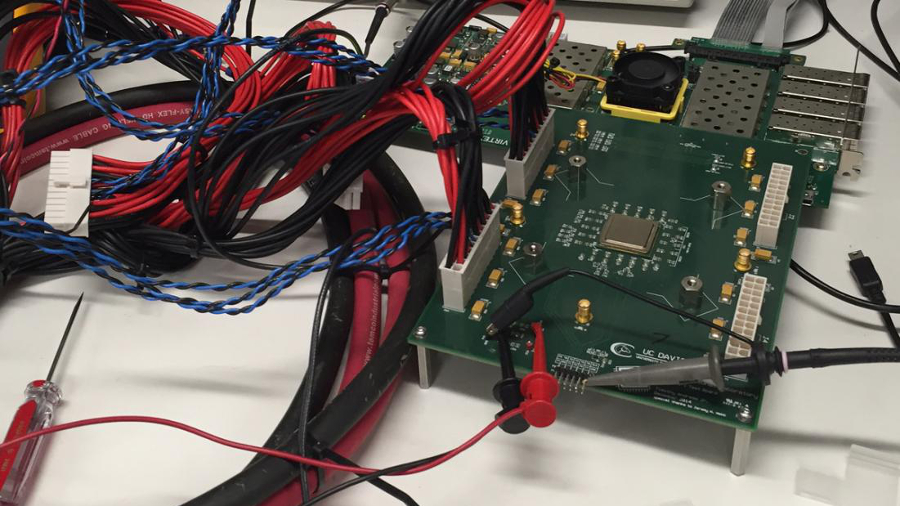This powerful 1,000-core processor is surprisingly energy-efficient

These days, we might be used to some fairly big numbers in terms of core counts for processors – such as the likes of Intel's whopping 72-core Knights Landing supercomputing chip – but researchers have just produced a rather mind-boggling 1,000-core beast capable of carrying out 1.78 trillion instructions per second.
Yes, that's 1,000-cores – a thousand, count 'em (or rather don't, or we'll be here a while) – bristling on board what has been dubbed the KiloCore chip by the team which built it at the University of California, Davis.
The UC Davis boffins claim that this is "the world's first 1,000-processor chip and it is the highest clock-rate processor ever designed in a university", noting that the previous champ of the core-count ran to 300. Although these sort of chips obviously aren't built to be sold commercially, and are just used for research purposes.
Fully independent cores
IBM built the KiloCore chip (which contains 621 million transistors) using a 32nm process, with each core operating at up to a maximum clock speed of 1.78GHz, plus the fully independent cores can be shut down when not in use, the end result being a highly efficient processor capable of powerful parallel computing with low energy use.
Indeed, Bevan Baas, the professor who led the KiloCore team, claimed that this is the most energy-efficient 'many-core' processor ever seen, with the 1,000-cores capable of executing 115 billion instructions per second using just 0.7W.
That makes it a hundred times more efficient than a modern laptop CPU, and the chip could be powered by just one AA battery.
KiloCore is aimed at video work and encryption, and crunching its way through large amounts of parallel data processing without breaking a silicon sweat, as it were.
Sign up for breaking news, reviews, opinion, top tech deals, and more.
Image Credit: UC Davis
Via: Engadget
- Check out our roundup of the 10 top processors from AMD and Intel
Darren is a freelancer writing news and features for TechRadar (and occasionally T3) across a broad range of computing topics including CPUs, GPUs, various other hardware, VPNs, antivirus and more. He has written about tech for the best part of three decades, and writes books in his spare time (his debut novel - 'I Know What You Did Last Supper' - was published by Hachette UK in 2013).